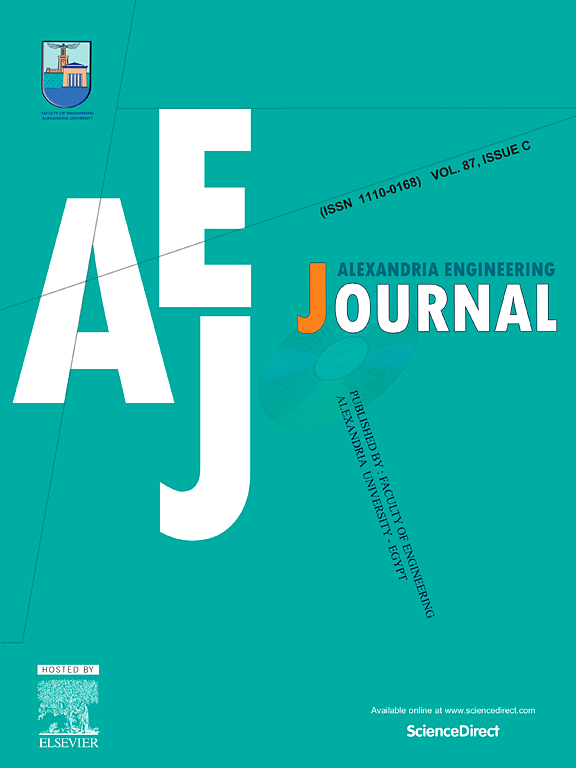基于MSA-Net的遥感图像多尺度油井检测:背景分离与动态优化策略
IF 6.8
2区 工程技术
Q1 ENGINEERING, MULTIDISCIPLINARY
引用次数: 0
摘要
油井探测是遥感资源监测的重要手段,对油田资源管理和环境保护具有重要意义。然而,油井目标由于其体积小、背景复杂、视角多样而面临挑战。本文提出了一种创新的油井检测框架,以提高检测精度和鲁棒性。该框架结合了多尺度特征提取、背景分离和增强技术。首先,背景分离模块将油井目标与背景区分开来,而生成对抗网络(GAN)增强目标显著性,减少背景干扰。然后,利用特征金字塔网络(FPN)进行多尺度特征提取,以处理各种油井目标尺寸和形状,并结合注意机制优化特征融合,提高对小目标和部分遮挡目标的检测。最后,自适应检测模块根据目标特征调整策略,利用边界盒回归和非最大抑制(NMS)技术对结果进行细化,保证精确定位。实验结果表明,该方法的性能得到了显著提高,有效解决了不同目标尺度和遮挡问题,为油田管理提供了可靠的支持。本文章由计算机程序翻译,如有差异,请以英文原文为准。
Multi-scale oil well detection in remote sensing images based on MSA-Net: Background separation and dynamic optimization strategy
Oil well detection is vital in remote sensing resource monitoring, significantly improving oilfield resource management and environmental protection. However, oil well targets pose challenges due to their small size, complex backgrounds, and diverse viewpoints. This paper proposes an innovative oil well detection framework to enhance detection accuracy and robustness. The framework combines multi-scale feature extraction, background separation, and enhancement techniques. First, the background separation module distinguishes oil well targets from the background, while the Generative Adversarial Network (GAN) enhances target saliency, reducing background interference. Then, a Feature Pyramid Network (FPN) is used for multi-scale feature extraction to handle various oil well target sizes and shapes, combined with an attention mechanism to optimize feature fusion for improved detection of small and partially occluded targets. Finally, an adaptive detection module adjusts the strategy based on target features, using bounding box regression and Non-Maximum Suppression (NMS) to refine results and ensure precise localization. Experimental results show significant improvements in performance, effectively addressing different target scales and occlusion issues, providing reliable support for oilfield management.
求助全文
通过发布文献求助,成功后即可免费获取论文全文。
去求助
来源期刊

alexandria engineering journal
Engineering-General Engineering
CiteScore
11.20
自引率
4.40%
发文量
1015
审稿时长
43 days
期刊介绍:
Alexandria Engineering Journal is an international journal devoted to publishing high quality papers in the field of engineering and applied science. Alexandria Engineering Journal is cited in the Engineering Information Services (EIS) and the Chemical Abstracts (CA). The papers published in Alexandria Engineering Journal are grouped into five sections, according to the following classification:
• Mechanical, Production, Marine and Textile Engineering
• Electrical Engineering, Computer Science and Nuclear Engineering
• Civil and Architecture Engineering
• Chemical Engineering and Applied Sciences
• Environmental Engineering
 求助内容:
求助内容: 应助结果提醒方式:
应助结果提醒方式:


